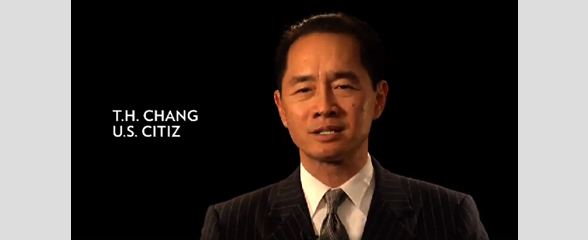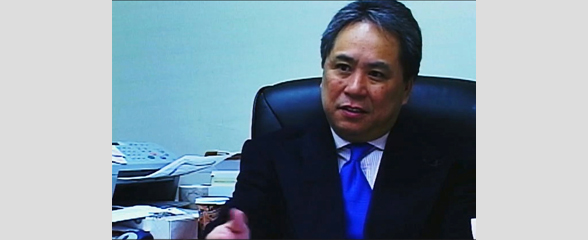Television

2008.041.003 Oral History Interview with Ti-Hua Chang
Ti-Hua Chang is a prominent television journalist based in New York City. He has been awarded the Peabody, Edward R. Murrow, and numerous Emmy awards for his investigative journalism. Chang is especially proud of discovering the four witnesses to the 1963 murder of Medgar Evers, which led to the re-opening of that famous case.
Chang’s father was a renowned journalist who covered various significant events, including the Hiroshima bombing. Chang decided to follow his father into the journalism profession, despite his father’s advice to become a doctor. However, it was difficult for Chang to land a job in television. His friend, Al Itilson, pointed out to him that his Asian identity was probably hindering his job opportunities. As a result, Chang decided to change his name to increase his chances of being hired.
Chang eventually got his first job in Mississippi, where he was able to embrace his full name and identity. He understood the significant impact using his full name has on underrepresented communities. He believes that a journalist’s role is to hold to account the government and give a voice to the people. In January 2009, Chang reported a story on Asian poverty,which highlighted the economic struggles of Asian Americans, particularly immigrants.
Chang concludes by emphasizing the importance of journalism for democracy and the need for diverse voices to accurately portray society. He believes that fewer journalists would be bad for democracy and Asian Americans because, to cover the Asian American story, you would need Asian Americans.

2014.036.013 Oral History Interview with Tony Wong April 1, 2004
Tony Wong, General Manager at Sino Television, was born and raised in Hong Kong. He immigrated to the United States to study broadcasting at both the undergraduate and graduate level. Tony recalls his initial struggles as a student coming from a poor economic background and how he eventually moved to New York City, receiving a job offer at NBC right after graduation. During his time at NBC and in Sino TV as a part-timer, Tony would learn a myriad of skills including production, directing, and programming. Tony would eventually move on to work at different companies before returning to Sino TV as a full-time employee. He would describe Sino TV’s area of operation, and programming variety, and emphasize their stance on being politically and culturally neutral regarding the different Chinese communities and political views. Later in the interview, Tony shares his thoughts on Chinese unity and stereotypical “passiveness†and observes a change in this following the 9/11 attacks. Tony notes that following the 9/11 attack, the Chinese community banded together to help local recovery and rescue operations and fundraised 1.5 million dollars for the World Trade Center Fund and the American Red Cross. He also highlights other efforts to create programs that promoted Chinese activism for not only disasters but also for political purposes.